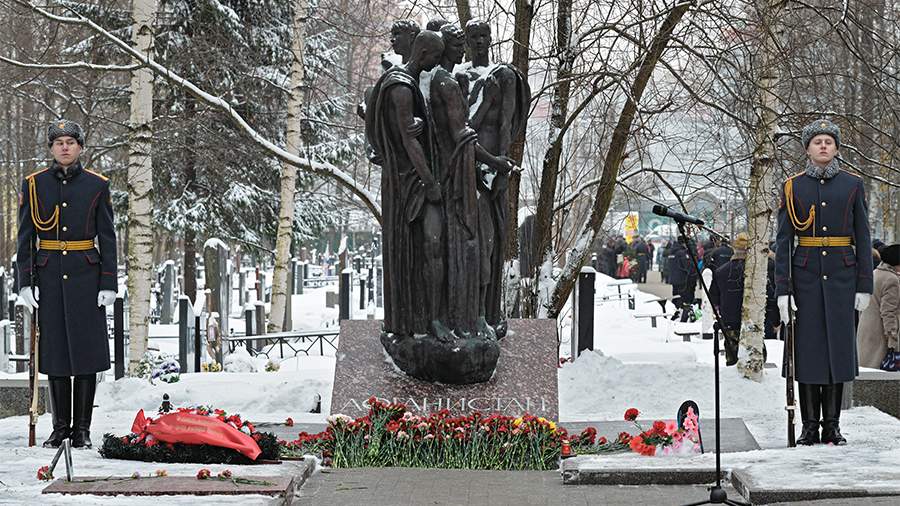February 15 - Day of Remembrance of Soldiers-Internationalists: History and Traditions
- Новости
- Local news
- February 15 - Day of Remembrance of Soldiers-Internationalists: History and Traditions

Every year on February 15, Russia celebrates the Day of Remembrance of Soldiers-Internationalists. This date symbolizes not only sorrow for the dead, but also reminds of the heroism of those who in different years defended the interests of the Fatherland beyond its borders. In 2025 it falls on Saturday. Read about the history and traditions of the holiday in the material "Izvestia".
Memorial Day of soldiers-internationalists - 2025: the history of the establishment of the date
The decision to establish a memorable date in 2010 was made by the President of Russia. Since 2011, the Day of Remembrance of soldiers-internationalists is celebrated in our country every year at the official level.
February 15 as a memorable date was not chosen by chance. It was on this day in 1989 that the last Soviet soldier crossed the bridge of the Amu Darya border river near Termez, completing the withdrawal of Soviet troops from Afghanistan. This event marked the end of a multi-year military conflict that left a deep trace in the country's history.
In July 1973, a coup d'état took place in Afghanistan: the monarchy was overthrown and a republican system was established in the country. In 1978, the People's Democratic Party of Afghanistan (PDPA) came to power. Its radical reforms caused discontent of a part of the country's population. At the same time, external forces actively intervened in the situation: the USSR supported the PDPA government, while the United States and a number of other countries provided assistance to the armed opposition.
By the end of the 1970s, Afghanistan became an arena of geopolitical confrontation between the United States and the Soviet Union, which had a long border with the republic.
On December 12, 1979, the Politburo of the CPSU Central Committee decided to deploy Soviet troops to Afghanistan. A few days later, the transfer of military units began, and on December 27, as a result of the special operation "Storm 333", Afghan President Hafizullah Amin was liquidated, after which Babrak Karmal came to power.
The Soviet leadership did not plan to launch a large-scale military operation, but the situation quickly escalated into a protracted conflict. In February 1980, after mass anti-government demonstrations in Kabul and the shelling of the Soviet embassy, Moscow decided to launch active combat operations. Already in March, Soviet troops together with the Afghan government army launched large-scale military operations against the armed opposition.
In 1982, the Limited Contingent of Soviet Troops (OKSV) conducted major Panjsher campaigns, and from April 1985 began supporting the operations of the Afghan government forces using Soviet aviation, artillery and sapper units.
Despite a number of major successes, it was not possible to turn the tide of the war. In the mid-1980s, it became obvious that further Soviet military presence in Afghanistan would not lead to a resolution of the conflict. In 1986, Mikhail Gorbachev, General Secretary of the CPSU Central Committee, announced his intention to withdraw troops.
In 1988, an agreement was signed in Geneva, under which the USSR would carry out a phased withdrawal of its forces from Afghanistan between May 15, 1988 and February 15, 1989.
The Afghan war lasted nine years, one month and 18 days, claiming the lives of more than 14,500 Soviet soldiers and officers, more than 53,000 were wounded, and 417 were missing. It became the largest military conflict after the Great Patriotic War and an important milestone in modern history, having a serious impact on the domestic and foreign policy of the USSR, as well as on the further development of Afghanistan.
Who is remembered on the Day of Remembrance of soldiers-internationalists on February 15
The Day of Remembrance on February 15 is dedicated not only to Afghan soldiers, but also to all Russians who performed military duty outside the Fatherland. After World War II more than one and a half million Soviet and Russian military men took part in the wars in Korea and Vietnam, Syria and Egypt, Mozambique and Angola, were sent to hot spots in the republics of the former USSR, in Yugoslavia. These people fulfilled their military duty with honor, courage and full dedication.
Traditions of the Day of Remembrance of Internationalist Soldiers in Russia
In honor of the Day of Remembrance of soldiers-internationalists in Russia are held solemn and patriotic events. Ceremonies are held to lay flowers at memorials and monuments to soldiers-internationalists. Solemn rallies and actions are organized with the participation of veterans of combat operations, representatives of the authorities and the public. Afghan veterans gather to remember their years of service and their fellow soldiers, and to commemorate their comrades-in-arms who have not returned home.
Various events are also held in the former Soviet republics in memory of citizens who participated in international conflicts.
Earlier "Izvestia" told about the history and traditions of celebrating in Russia the Day of the defeat of Nazi troops in the Battle of Stalingrad in 1943.
Переведено сервисом «Яндекс Переводчик»

